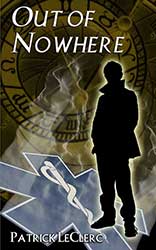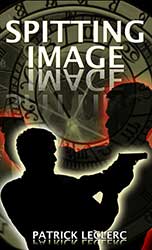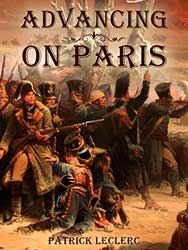
A Matter of Honor: Part I
2 minutes, no warnings
It was cool. Mist still lay in the low areas. The morning light was still weak and grey. These things always happened early. Whish made sense, I suppose. Nobody slept well the night before a duel, so why try to sleep in, and it would be hellish going about one's business knowing that you to face the possibility of a horrible death two hours after lunch.
I wanted to move around, to fight the chill and burn off nervous energy, give myself something to think about besides the idea of steel sliding through my organs. I cursed inwardly, wondering just how I wound up here. This really is the type of thing I work hard to avoid.
This is what comes from associating with the aristocracy.
The really painful thing about my situation, at least until the actual pain began, was that it really was my fault. Oh, not exclusively mine, and there were circumstances, but by this time I should have known better.
I was a lieutenant, and that is something I should have know would bring trouble. I hadn't sought it out, but once I was given the commission, I should have pawned the gold buttons and deserted.
I tried to avoid promotion. It's easier to keep a low profile in the ranks, and attention is never a good thing. It's hard to avoid becoming a corporal, if you've been soldiering as long as I have, and you know what you're doing. Sergeant just sort of happened when I wasn't paying attention, and the extra pay and freedom from the worst work details was just too tempting. No army makes sergeants dig latrines.
But lieutenant, well, that was mostly my own fault. Still couldn't have done it without Robespierre and General Dumas, but it's hard to blame them.
WE had assaulted Mount Cenis, which the Austrians and Piedmontese were defending. Our captain was killed, the lieutenant badly wounded, and the attack stalled. That happens far too often when men are deprived of a leader. They lose the drive to more forward, and worse, they lose the basic instinct to seek safety. That's what comes from modern drill. Train a man to respond to orders and then stop given them and see what happens.
The Americans are better at that. Even without orders, the average American company will have somebody who seizes the initiative and gets the troops moving. Regular officers don't like that because sometimes the men will ignore a tactically sound but personally suicidal order. That's one reason why we lost so many battles to the British, but so seldom lost an army. When you can't win, survive to fight another day. The redcoats kept thinking one more push with the bayonet would change reality. Sometimes it did, and we ran away. But when it didn't, they lost an entire command. Bennington, Saratoga, King's Mountain, Cowpens. All losses that our raggedy arsed militia would have run away from, instead saw a gentleman general hand over his sword and deliver his regiments into captivity. Even when they pushed us off Breed's Hill, by superhuman effort, the bayonet and balls of solid brass, they left a third of their men bleeding on the field and had to abandon Boston the next spring.
But that was a continent away, and I no longer had John Stark and his wily frontiersmen beside me, but conscripts from the slums of Paris, discipline beaten into them. All well and good, but at the same time, the initiative was beaten out. We'd gotten to the base of the enemy walls, their artillery couldn't depress enough to hit us, but they kept pouring musketry into our ranks. The men milled about, waiting for an order, taking casualties. It was madness to stay where we were, and worse to retreat back through the Austrian cannon fire, so I did the only logical thing. I rallied the company and pushed the attack onward.
We drove the enemy off the heights, and turned a defeat into a victory. And even if I'd been motivated by survival instinct more than honor and glory, I was happy to take credit for it.
Traditionally, European armies have a wide gulf between officer and enlisted. In Louis' army, I'd have gotten a medal and maybe a berth as a Sergeant Major. But in the new army of the Republic, full of Liberte, Egalite and Fraternite, I was bumped up to the dizzy height of lieutenant.
Should have seen that one coming. After all, our general had been born a slave. Oh, his father had been nobility, but it's still a long climb to General of the Army of the Alps.
And I'd embraced it. There's much to admire in the democratic ideal where a black slave can command an army, and a skilled sous officier can rise instead of a brave but dim aristocrat.
The only problem was than now I was expected to conduct myself like a gentleman. Which doesn't actually mean avoiding bad behavior, just being ready to defend that bad behavior with one's life.
I heard a commotion across the field. Young Lieutenant Mercier and his seconds had arrived. If he was feeling as nervous as I, he didn't show it. The young man looked angry, eager to get down to business.
Oh, and there had been a girl...
Part II
Books by Patrick LeClerc
Immortal Vagabond Healer Series
Book 1

Sean Danet is immortal—a fact he has cloaked for centuries, behind enemy lines and now a paramedic’s uniform. Having forgotten most of his distant past, he has finally found peace. But there are some things you cannot escape, however much distance you put behind you.
Buy NowBook 2

Immortal Sean Danet can heal others with a touch. Finally, after too long as a rootless vagabond, he has found a place he feels he belongs, with friends he can trust and the love of an intelligent, beautiful woman. The life he dreamed of but never expected to attain.
Buy NowShort Historical Adventures

One of the problems with being immortal is you get to live through all of history's most famous blunders. Like Napoleon's inspired idea for a land war in Asia. If you love historical military fiction, action and adventure, or just one of the sexiest urban fantasy heroes of all, Advancing on Paris is a must.
Buy NowMore Great Fiction from Patrick LeClerc

Semper Fidelis. The motto of the United States Marine Corps. On the ragged edges of civilization, Corporal Michael Collins has lived those words, taking on riots and evacuations, rebels and terrorists. Asteroid belt patrol is just another deployment. Ninety nine percent boredom, one percent terror.
Buy Now
The city of Laimrig, once a mighty hub of commerce and a seat of power sinks into corruption and decay. Slavers, crime lords and corrupt officials hold sway while the ruling nobility wallow in decadence. War rages beyond the borders, while within rebellion simmers and sinister plots unfold.
Buy Now
Trilisean is an acrobat turned burglar. Conn is a jaded former mercenary. Against the background of deadly blades, subtle schemes, glittering treasures, and dark sorceries, fate has thrown them together.
And fate has a sense of humor.
Buy Now